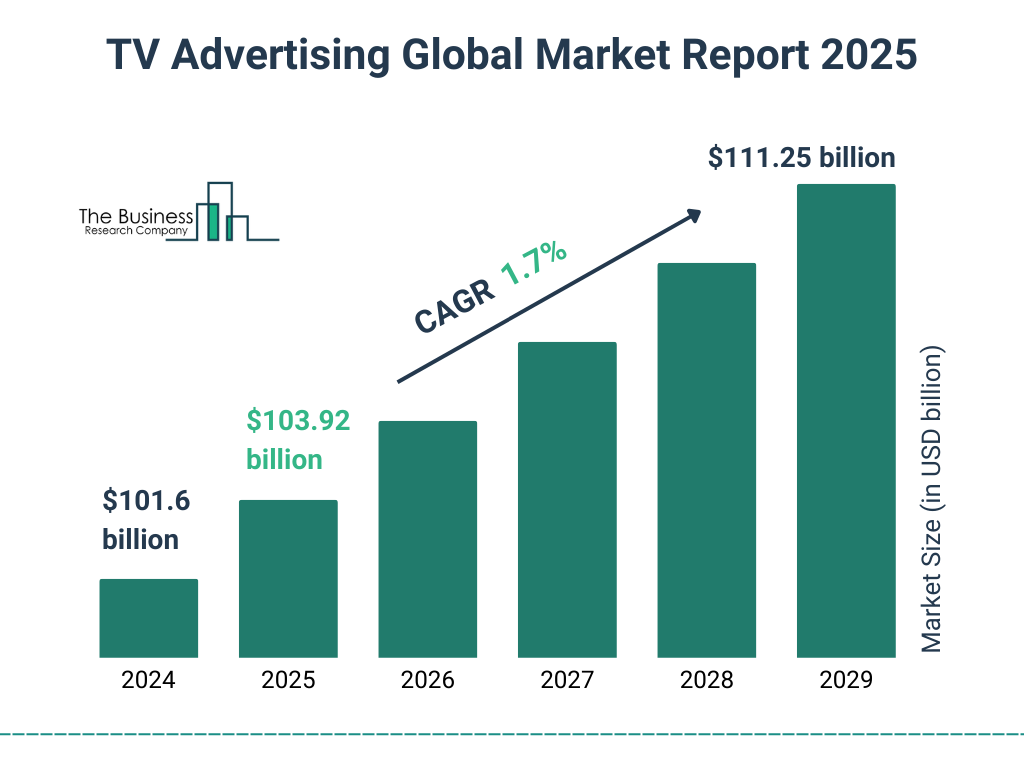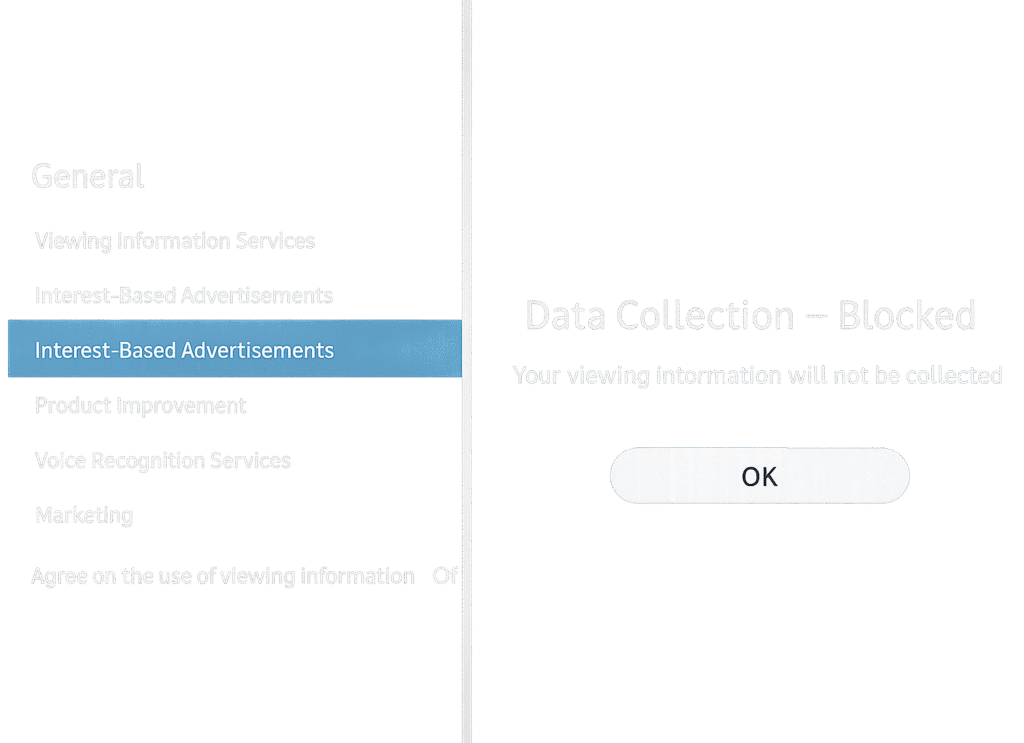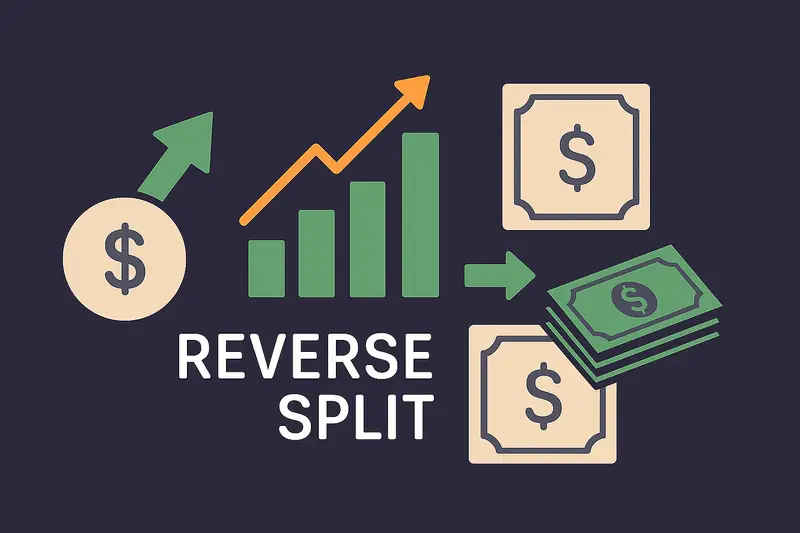You settle in for a Netflix binge, feeling safe in your living room.
But that sleek Samsung or LG screen isn’t just displaying content; it may be watching you.
Every show, every click, even content from your laptop gets recorded and sold to advertisers.
Key Takeaways
- Smart TVs collect extensive data through Automatic Content Recognition (ACR), capturing screenshots every 10-500 milliseconds
- Your viewing habits are worth more than the TV itself to manufacturers like Samsung, LG, and Vizio
- Data collection includes HDMI content from connected laptops, gaming consoles, and external devices
- Privacy settings exist but are buried deep in menus with confusing names across all major brands
- Complete opt-out is possible by disconnecting from internet or using dedicated streaming devices

While you’re relaxing and watching your favorite shows, your TV can be busy taking screenshots every few milliseconds.
It records what you watch and builds detailed profiles of your viewing habits to sell to the highest bidder.
Now don’t panic, not all TVs are the same, but it’s always best to be aware.
A recent 2024 study by University College London found that smart TVs collect viewing data through Automatic Content Recognition (ACR) technology.
What Your Smart TV Actually Records
Your smart TV isn’t just passively showing content—it’s actively monitoring and recording everything that appears on your screen.
According to the UCL research published in ACM Internet Measurement Conference 2024, smart TVs deploy sophisticated tracking systems that capture extensive data about viewing habits.
Here’s some of specific data your TV may collect:
Viewing Content Analysis
Every show, movie, or video you watch gets identified through Automatic Content Recognition (ACR). The Center for Digital Democracy reports that this technology takes pixel samples from your screen and matches them against massive databases. It determines exactly what you’re watching—whether it’s from Netflix, cable TV, or even a laptop connected via HDMI.
App Usage Tracking
Which streaming apps you open, how long you use them, what you search for, and even which menu items you click all get logged. Consumer Reports testing confirms that smart TVs collect information about app usage patterns and menu navigation.
Voice Recordings
If you’ve enabled voice features, your TV may record and store conversations. Samsung and LG TVs with built-in microphones can listen for wake words and send audio recordings to the cloud for processing, according to Consumer Reports privacy analysis.
Location and Network Data
Your IP address, WiFi network details, and approximate location get collected. This data can be used to link your TV viewing habits with your other devices and online activity.
Connected Device Activity
Perhaps most concerning: smart TVs track HDMI content, meaning they can monitor what you’re doing on connected laptops, gaming consoles, and other devices. The UCL study specifically noted that ACR captures “content viewed through external devices such as a laptop.”
Why TV Manufacturers Want Your Data
The business model is straightforward: your data is more valuable than the TV itself.
Industry reports show that advertising and viewer data generates more profit for TV makers than the TV hardware itself.
Your viewing habits get packaged and sold to advertisers, market researchers, and data brokers who use it to build detailed profiles for targeted advertising.
This isn’t just about showing you ads for products you might like. The Federal Trade Commission considers TV viewing history sensitive data that requires express consent before collection. It’s in the same protected category as personal health and financial data.
Connected television platforms combine viewing data with generative AI tools to deliver customized advertisements. This includes virtual product placements inserted into shows and delivered in real time.
Some manufacturers even undercut their TV prices, just to collect your data.

The Privacy News You Should Know About
This isn’t theoretical; major TV manufacturers have already been caught secretly collecting data:
Vizio’s Secret Surveillance (2014-2017)
The FTC settlement documents reveal that Vizio sold smart TVs that automatically used ACR to monitor what users were watching without their knowledge. In 2017, there were upwards of 11 million Vizio smart TVs tracking all their customers’ viewing histories. The company paid $2.2 million to settle the case.
Samsung’s Data Sharing Practices
Consumer Reports investigation found Samsung TVs were transmitting user data to third parties, raising concerns about data security and user consent.
Google’s Mandatory Privacy Policies
Consumer Reports testing found that Android TVs require users to accept Google’s privacy policy during setup—you can’t opt out and still use the TV, even as a basic display.
How to Stop Your Smart TV From Spying on You
Every major TV brand offers ways to disable tracking, but they bury these settings deep in menus with confusing names.
Here’s how to find and disable them based on Consumer Reports testing and manufacturer documentation:
Keep in mind these may vary by model, refer to your products manual for more details.

Samsung TVs
Samsung calls their tracking system “Viewing Information Services.”
Here’s how to disable it:
- Press the Home button on your remote
- Go to Settings > All Settings > General & Privacy
- Select Terms & Privacy or Privacy Choices
- Find Viewing Information Services and turn it Off
- Look for Interest-Based Advertising and turn it Off
- Disable Voice Recognition Services if you don’t need voice commands
LG TVs
LG’s tracking is branded as “Live Plus.”
Follow these steps based on Consumer Reports guidance:
- Press the Settings button on your remote
- Select All Settings > Support > Privacy & Terms
- Click User Agreements
- Disable Viewing Information
- Turn off Interest-Based Advertisements
- Enable Do Not Sell My Personal Information
- Disable Voice Information under User Agreements
Sony TVs (Google TV/Android TV)
Sony TVs use Google’s platform, so you’ll need to adjust both Google and Sony settings:
- Go to Settings > Privacy > Ads
- Select Reset advertising ID
- Find Settings > System Preferences > Samba Interactive TV and turn it Off
- Look for any ACR-related settings in the privacy menu and disable them
TCL, Hisense, and Other Roku TVs
For TVs running Roku OS, based on Consumer Reports testing:
- Go to Settings > Privacy > Smart TV Experience
- Turn off Use Info from TV Inputs
- Go to Privacy > Advertising
- Enable Limit ad tracking
- Uncheck Personalized ads
Amazon Fire TV Edition
Amazon Fire TVs present unique privacy challenges compared to other smart TV platforms.
Amazon will continue to collect and process your data even after opting out to deliver device features like parental controls and the “Recents” row. Amazon states explicitly that turning off tracking “will not affect” data collection related to Amazon services like Prime Video.
Steps to limit data collection:
- Go to Settings > Preferences > Privacy Settings
- Disable Device Usage Data (limits marketing use, but not collection)
- Turn off Collect App and Over-the-Air Usage Data
- Disable Interest-Based Ads
- Reset your Advertising ID
- Under Manage Sharing From Apps, stop third-party apps from sending data to Amazon
However, Mozilla’s privacy analysis notes that Amazon doesn’t need to sell your data to others because they use it extensively for their own retail and advertising empire. Even with all privacy settings disabled, Amazon continues monitoring your Prime Video usage and device functionality.
Advanced Privacy Protection Methods
Disabling built-in tracking is just the first step.
For maximum privacy protection:
Network-Level Blocking
Set up DNS filtering to block known tracking domains at the router level. Services like Pi-hole can prevent your TV from communicating with advertising and analytics servers, even if the TV tries to phone home.
Use a Dedicated Streaming Device
Consider disconnecting your smart TV from the internet entirely and using a separate streaming device like an Apple TV, NVIDIA Shield, or dedicated media player.
These typically offer better privacy controls than built-in TV apps.
Create a Guest Network
Put your smart TV on an isolated guest network to prevent it from accessing other devices on your home network and limit data collection about your overall internet usage.
Regular Privacy Audits
TV manufacturers regularly update their software and privacy policies.
Check your privacy settings every few months to ensure new tracking features haven’t been enabled automatically.
What Happens When You Opt Out
Disabling these tracking features won’t break your TV, but you’ll notice some changes:
Reduced Personalized Recommendations
Your TV’s home screen won’t show content suggestions based on your viewing history. You’ll still have full access to all streaming apps and services.
Generic Advertising
You’ll still see ads, but they won’t be targeted based on your viewing habits. This might actually be a relief for many people.
Slower Content Recognition
Features like “What’s This Song?” or automatic show information may not work as well or at all.
Limited Cross-Device Integration
Your TV won’t sync viewing data with other devices from the same manufacturer.
Take Back Control of Your Privacy
Your smart TV doesn’t have to be a surveillance device.
With a few menu changes, you can significantly reduce data collection while keeping all the functionality you actually want.
Take control of your privacy today.
Start with the settings guide above for your TV brand.
Remember to revisit these controls periodically as manufacturers love to introduce new tracking features in software updates.
Your living room should be a place to relax, not a data collection center for corporate profits.
Helpful Resources
- Consumer Reports Privacy Guide – Step-by-step privacy settings for all TV brands
- Electronic Frontier Foundation – Digital privacy rights and protection guides
- Federal Trade Commission – Vizio settlement details and privacy enforcement
- Mozilla Privacy Guide – Privacy reviews of smart TVs and connected devices
- Pi-hole Network Blocking – Block advertising and tracking at the network level
Frequently Asked Questions
Thanks for reading!
If you found this helpful, like it, share it, and check out more of our content.
About The Author
Nikolas V.
Deviate Solutions LLC
I’ve spent years navigating computer science, digital marketing, business development, and day trading; chasing entrepreneurship and independence. Now I help businesses grow and expand through the latest technology and industry strategies. With all I learn and experience, I use my platform to break down complex insights so you can think differently about technology, your business, and your finances. Everything I share comes from real experience and plenty of trying and failing. Failure is part of the game. Always take the shot, Let’s learn to win together.
Get In Touch






